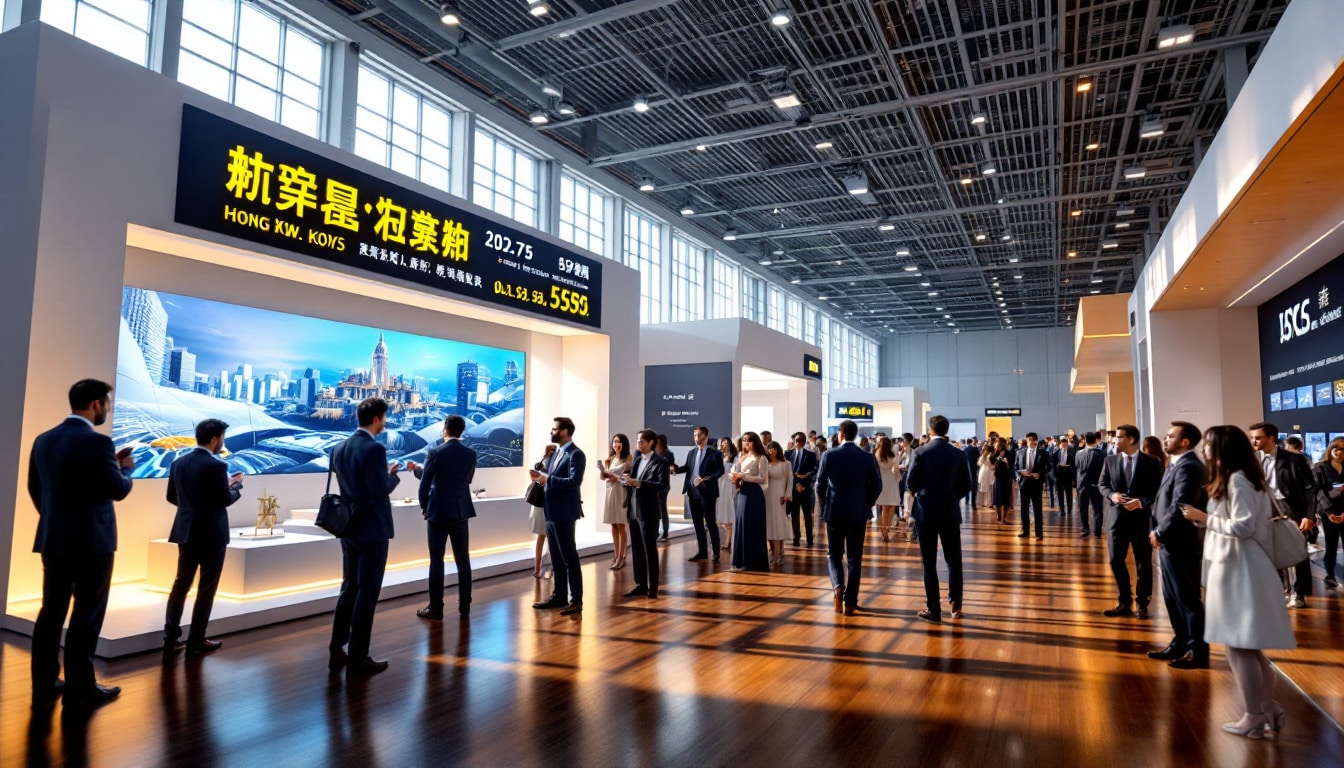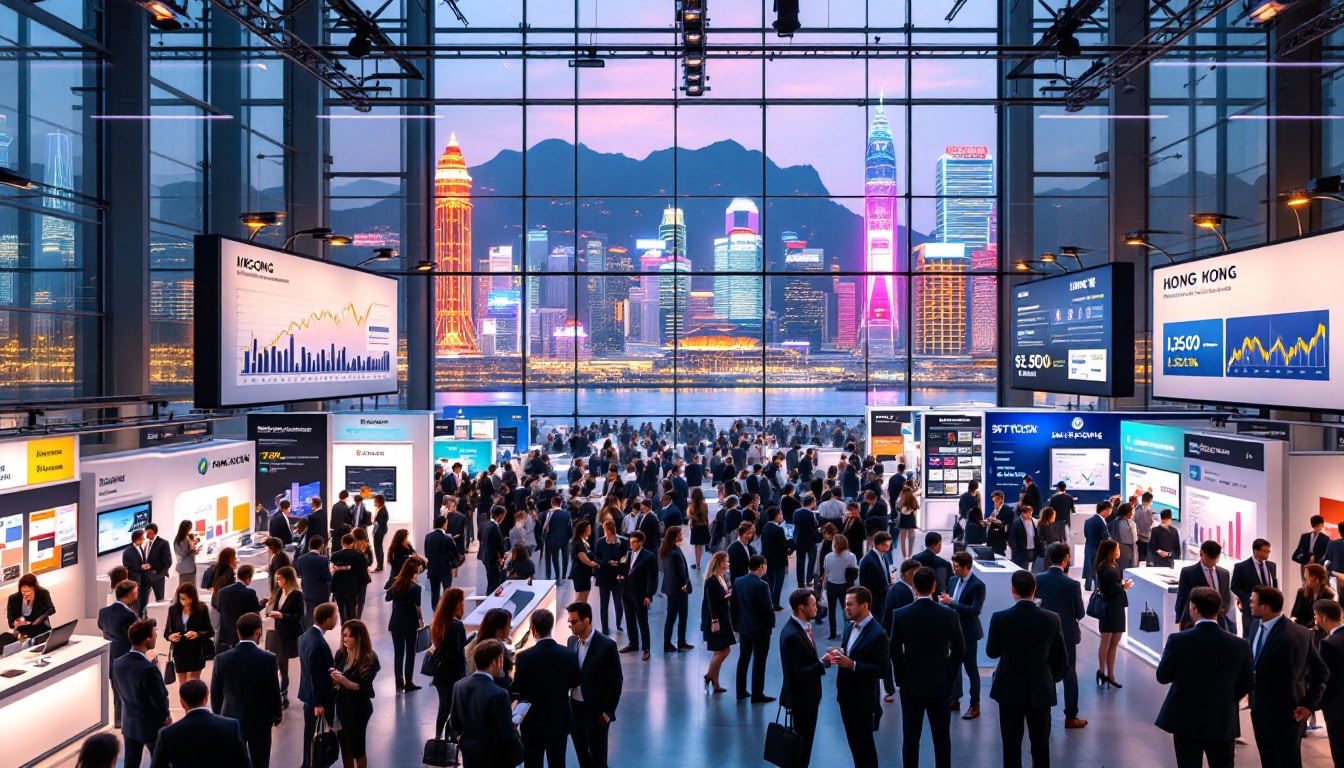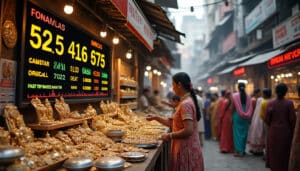Welcome to our site, where every click counts. We value your online experience. Discover how we use data to best serve you.
We use cookies and data to provide and maintain our Google services, track interruptions, and protect against spam, fraud, and abuse. This allows us to measure public engagement and site statistics to understand the use of our services and improve their quality. If you choose to “Accept all,” we will also use cookies and data to develop and improve new services, measure the effectiveness of ads, and display personalized content based on your settings. By selecting “More options,” you can view additional information, including details on managing your privacy settings.

trade shows in Hong Kong facing the rise of the money economy
Hong Kong, recognized as one of the leading global commercial centers, sees its trade shows evolve in response to the rise of the money economy. This transformation occurs in a context where the population is aging rapidly, creating increased demand for products and services tailored to the needs of seniors. Trade show organizers adapt their offerings to respond to this dynamic, integrating sectors such as health, wellness, assistive technologies, and financial services dedicated to this segment of the population.
The money economy represents a strategic opportunity for companies looking to expand their market. In Hong Kong, where the population density and purchasing power of consumers are high, trade shows become essential platforms to showcase innovations and establish partnerships. Exhibitors integrate specific products such as medical devices, adapted housing solutions, and technologies that facilitate the daily lives of older adults. This reorientation towards a mature clientele requires a deep understanding of the needs and expectations of this market segment, as well as the ability to present innovative and relevant solutions during trade events.
what is the money economy and its importance in Hong Kong
The money economy, or senior economy, encompasses all economic activities related to the needs and consumption of older people. In Hong Kong, this economy is gaining increasing importance due to the rapid aging of the population. According to the latest statistics, a significant portion of the population in Hong Kong will consist of seniors in the coming decades, transforming the economic and social dynamics of the region.
The importance of the money economy in Hong Kong is evident in the increased demand for health services, adapted urban amenities, simplified communication technologies, and wellness products. Trade shows become spaces where companies can showcase their innovations and meet the specific expectations of this market. Furthermore, this evolution stimulates innovation and fosters the development of advanced technological solutions, such as medical remote monitoring devices, health management applications, and support infrastructure for independent living.
The role of the money economy in Hong Kong extends beyond the private sector. Government initiatives and support programs also play a crucial role in promoting a favorable environment for seniors. Therefore, trade shows become places of interaction between public and private stakeholders, facilitating the necessary synergy to develop integrated and sustainable solutions. This convergence of interests helps to strengthen Hong Kong’s position as a leader in the money economy, providing an exemplary model for other major cities facing similar demographic challenges.
how trade shows are adapting to this new dynamic
To adapt to the rise of the money economy, trade shows in Hong Kong have undertaken several strategic initiatives. One of the main adaptations concerns the selection of exhibitors, who are increasingly leaning towards companies offering solutions tailored to seniors. For example, there is an increase in booths dedicated to connected health, assistive technologies, and wellness services, thus addressing the specific needs of this clientele.
Another key adaptation is the layout of exhibition spaces to make them more accessible and comfortable for older visitors. This includes creating rest areas, clear and large signage, as well as paying special attention to the ease of navigation within the booths. Trade show organizers are also investing in interactive technologies, such as demonstrations in augmented reality and dedicated mobile applications, allowing for an enhanced user experience and more dynamic interaction with the exhibited products.
Additionally, trade shows are increasingly incorporating educational programs and conferences dedicated to the money economy. These sessions provide participants with valuable insights into the latest trends, technological innovations, and best practices in this field. They also create networking opportunities among businesses and professionals from different industries, thereby fostering fruitful collaborations and the development of integrated solutions for seniors.
Finally, trade show organizers closely collaborate with government institutions and non-governmental organizations to ensure that events align with public policies and local initiatives aimed at improving the quality of life for seniors. This collaboration strengthens the credibility of the shows and ensures the relevance of the offerings presented, effectively meeting the demands of the money economy.
opportunities for businesses in the money economy
The money economy opens a multitude of opportunities for businesses in Hong Kong, particularly in the health, technology, wellness, and financial services sectors. Firstly, the health sector benefits from increased demand for advanced medical products, telemedicine services, and home health monitoring devices. Innovative companies can leverage this trend by developing solutions that facilitate the health management of seniors while reducing costs and improving care efficiency.
In the field of technology, the money economy stimulates the development of smart devices and mobile applications designed to enhance the quality of life for older people. For instance, fitness tracking devices, adapted voice assistants, and simplified communication platforms are increasingly sought after. Tech companies can invest in research and development to create products tailored to the specific needs of seniors, thus offering significant added value in the market.
The wellness sector, on the other hand, benefits from the rising demand for services and products focused on mental health, relaxation, and adapted physical activity. Trade shows in Hong Kong allow companies to present innovative solutions such as custom fitness programs, alternative therapies, and ergonomic wellness products. These offerings not only meet the current needs of seniors but also cater to the aspirations for a balanced and active life.
Moreover, financial services for seniors represent another promising avenue. Retirement management, health insurance, and tailored investment options are areas where businesses can stand out by offering personalized solutions. Trade shows provide an ideal platform to meet potential partners, exchange ideas, and establish joint strategies aimed at meeting the expectations of this growing clientele.
In summary, the money economy in Hong Kong constitutes fertile ground for innovative businesses, offering diverse opportunities for growth and diversification. By proactively addressing the needs of seniors, businesses can not only strengthen their market position but also contribute to a more inclusive and sustainable society.
challenges faced by trade show organizers in Hong Kong
Despite the opportunities presented by the money economy, trade show organizers in Hong Kong must overcome several challenges to successfully adapt. One of the main hurdles lies in understanding and anticipating the diverse needs of seniors. It is crucial to develop a deep knowledge of this clientele to offer relevant and attractive solutions, which requires ongoing efforts in market research and analysis.
Another major challenge concerns the accessibility of events. Ensuring that shows are fully accessible for individuals with reduced mobility or specific needs requires meticulous planning. This includes not only the physical layout of exhibition spaces but also the establishment of support services such as personalized assistance, adapted audiovisual equipment, and flexible schedules to facilitate the participation of seniors.
Communication also presents an important issue. It is essential to develop effective marketing strategies that resonate with the aging population, using appropriate channels and suitable language. Organizers must ensure that their messages are clear, direct, and accessible, thus avoiding any misunderstandings or unintentional exclusion. This may include the use of simple visual aids, inspiring testimonials, and interactive demonstrations to capture the attention and interest of older visitors.
Furthermore, increased competition in the trade show sector poses an additional challenge. With more and more events focusing on the money economy, it is essential to stand out by offering unique experiences and ensuring excellence in quality. Organizers must constantly innovate, integrating cutting-edge technologies and creating interactive engagements that make trade shows attractive and memorable.
Finally, managing partners and exhibitors specialized in the money economy can prove complex. It is vital to maintain strong relationships and foster collaboration among different stakeholders to ensure a coherent and harmonious event. This requires effective coordination, transparent communication, and flexibility to meet the specific needs of exhibitors and participants.
In summary, although the money economy opens new perspectives for trade shows in Hong Kong, organizers must face several challenges.
the impact of technologies on trade shows
Innovative technologies play a crucial role in the transformation of trade shows in Hong Kong, particularly in the context of the money economy. The integration of advanced technologies allows for enhancing participant experiences and optimizing event operations. For example, the use of augmented reality and virtual reality offers immersive demonstrations of products, enabling visitors to better understand the features and benefits of the showcased solutions.
Digital platforms and mobile applications are also essential for facilitating navigation and interaction during trade shows. Visitors can use dedicated applications to plan their visit, book appointments with exhibitors, and receive real-time notifications about activities and conferences. These digital tools increase participant engagement and offer a personalized experience, meeting the specific expectations of seniors regarding simplicity and accessibility.
Moreover, data collection and analysis technologies enable trade show organizers to better understand visitor behavior and measure the effectiveness of various initiatives. By collecting data on participant preferences and interactions, organizers can adjust their strategies in real time, thus providing more relevant content and better-suited services to the demand. This data-driven approach contributes to the continuous optimization of events and enhances participant satisfaction.
Artificial intelligence (AI) and chatbots also represent valuable assets for trade shows. They facilitate real-time support, answering visitor questions and guiding them through their exhibition journey. This is particularly useful for seniors, who can benefit from additional assistance to navigate the complex spaces of trade shows. AI can also be used to personalize stand and conference recommendations based on the specific interests of each participant, thus increasing the relevance and effectiveness of interactions.
Finally, telemetry and wireless connectivity technologies ensure smooth and continuous communication between different points of the trade show. They manage visitor flows efficiently, coordinate activities, and guarantee event security. These technologies contribute to creating a more organized and pleasant environment, where participants can focus on networking and discovery opportunities without the logistical constraints sometimes inherent in large events.
In conclusion, technologies play a pivotal role in the evolution of trade shows in Hong Kong, particularly in response to the demands of the money economy. They not only enrich participant experiences but also enhance operational efficiency and ensure the relevance of the proposed content. The continued adoption of these technological innovations is crucial for maintaining the competitiveness and attractiveness of trade shows in an ever-changing economic landscape.
case studies of trade shows that successfully transitioned
Several trade shows in Hong Kong have successfully transitioned towards a focus on the money economy, serving as inspiring models for the industry. One notable example is the Hong Kong Senior Expo, a dedicated event that gathers thousands of older visitors and specialized exhibitors each year. This show has distinguished itself through its well-being and autonomy-centered approach for seniors, offering a wide range of solutions from smart health devices to physical rehabilitation services.
Another pertinent case is the Health and Wellness Carrefour, which integrated cutting-edge technologies such as virtual reality for demonstrations of medical devices and interactive simulations of physical therapies. This technological integration not only enhanced visitor engagement but also allowed exhibitors to showcase their products in a more dynamic and immersive way. Positive feedback from participants has strengthened the reputation of the trade show as an essential event for players in the money economy.
The Senior Technology Forum is also an exemplary example of this successful transition. By focusing on technological innovations aimed at improving the quality of life for older individuals, this trade show has attracted startups and established companies looking to present their latest inventions. The conferences and workshops led by industry experts have provided valuable learning and networking opportunities, facilitating collaboration among different actors and stimulating innovation in the sector.
These case studies demonstrate that the success of the transition to the money economy relies on a deep understanding of seniors’ needs, effective integration of technologies, and close collaboration between exhibitors and organizers. They also illustrate the importance of creating inclusive and welcoming environments where seniors feel valued and engaged. By drawing inspiration from these examples, other trade shows can adopt similar strategies to better meet the demands of this booming economic dynamic.











